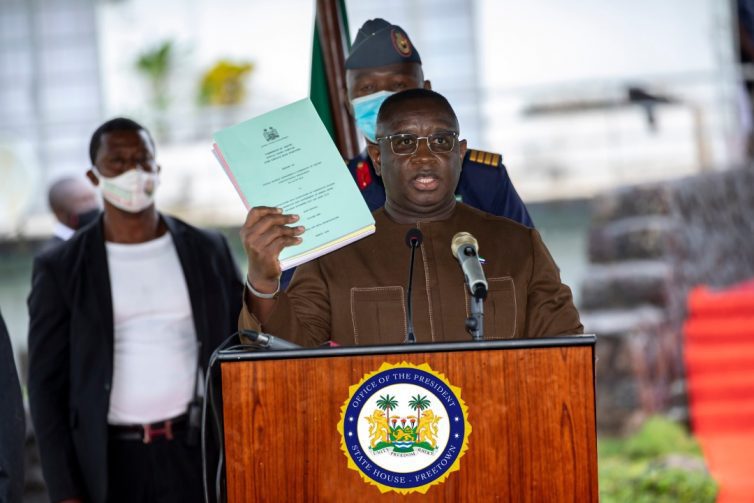Sierra Leone’s Anti-Corruption Act 2008 makes provision for public officers to declare assets and liabilities to the Anti-Corruption Commission (ACC).
“Every public officer shall within three months of becoming a public officer deposit with the Commission a sworn declaration of his income, assets and liabilities and thereafter not later than 31st March in each succeeding year that he is a public officer, he shall deposit further declarations of his income, assets and liabilities and also while leaving office,” the law states.
However, the ACC always complains about the lack of compliance among public officers to declare their assets as required by anti-corruption laws. For example, on May 15 this year, the ACC issued a statement reminding public officers about the legal consequences for failing to comply with the law.
Investigations on assets of former public officers have led to the confiscation of some unexplained wealth acquired by former public officers. “We have been able to recover over $2 million of cash, we have been able to recover properties that have been returned to the state,” said Mr. Francis Ben Kaifala, the ACC’s Commissioner.
President Julius Maada Bio whose campaign promises included rooting out corruption inaugurated a Commissions of Inquiry (COI) on January 29, 2019 at the compound of the former Special Court for war crimes located in the west end of Freetown. The COI was meant to probe into the affairs and alleged corruption of the former government head by former President Earnest Bai Koroma.
The President last month launched the White Paper on the findings and recommendations of the COI headed by three judges from Nigeria, Ghana and Sierra Leone. According to the COI, the former president had reported his salaries, pension and income on investments to a total of €389,000 (4.48 billion Leones), a sum that “far exceeds his total emoluments and legitimate earnings”.
The COI made wide-ranging recommendations such as the confiscation of assets belonging to former President Koroma, including properties valued at €4.3 million. Moreover, the former President and 120 others who served in his administration have been banned from travelling.
However, President Koroma who ruled Sierra Leone from 2007 to 2018 has in a statement dismissed the COI’s finings as “politically motivated charade calculated to impugn” his hard-earned reputation. He has vowed to clear his name and restore his reputation.
Moreover, strong majority of Sierra Leone perceive that the COI report is so damning primarily because public officers do not comply with asset declaration laws. “We know that some people have refused to declare their assets because they want to steal state resources,” Mohamed Bangura, a bus driver in the capital city Freetown, told the African Press. A new Afro Barometer report suggests that 54 percent of Sierra Leoneans support the implementation of the COI recommendations.
Some Sierra Leoneans have suggested that the anti-corruption laws will have to make provision for the general public to have the right to access information relating to assets declared by top public officers. On the other hand, some argue that given the fragile security of the country, Sierra Leone is not ready to make public the value of assets declared by politicians and their spouses.
ABJ/APA


